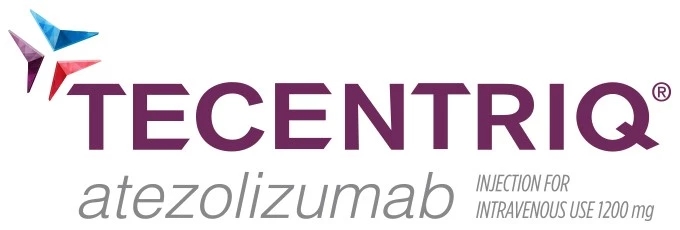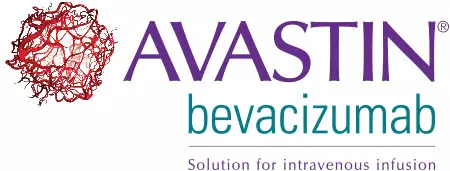Significantly prolonged survival, Roche's new drug combination is expected to become a first-line treatment for lung cancer
March 27, 2018 Source: WuXi PharmaTech
Window._bd_share_config={ "common":{ "bdSnsKey":{ },"bdText":"","bdMini":"2","bdMiniList":false,"bdPic":"","bdStyle":" 0","bdSize":"16"},"share":{ }};with(document)0[(getElementsByTagName('head')[0]||body).appendChild(createElement('script')) .src='http://bdimg.share.baidu.com/static/api/js/share.js?v=89860593.js?cdnversion='+~(-new Date()/36e5)];Today, Genentech, a member of the Roche Group, announced that its Phase 3 study, IMpower150, reached a common primary overall survival (OS) endpoint in an interim analysis, demonstrating the use of TECENTRIQ® (atezolizumab) in combination with Avastin® (bevacizumab). Chemotherapy (carboplatin and paclitaxel) is a first-line treatment for advanced non-squamous non-small cell lung cancer (NSCLC), which significantly prolongs life compared with chemotherapy alone.

According to estimates by the American Cancer Society (ACS), more than 234,000 Americans will be diagnosed with lung cancer in 2018, with NSCLC accounting for 85% of all lung cancer. It is estimated that about 60% of lung cancers in the United States are diagnosed at an advanced stage. These patients are in urgent need of new treatments to alleviate the disease and prolong life.
TECENTRIQ is Genentech's heavy immunization drug, an anti-PD-L1 monoclonal antibody that inhibits PD-L1 on tumor cells and reactivates T cells to kill cancer cells. Avastin is a biological antibody that specifically binds to vascular endothelial growth factor (VEGF) protein, which blocks the blood supply of the tumor and inhibits its spread by preventing the protein from interacting with receptors on vascular cells. There is currently evidence that Avastin, in addition to its anti-angiogenic effect, can further enhance the ability of TECENTRIQ to restore anti-cancer immunity by inhibiting VEGF-related immunosuppression, promoting T cell tumor infiltration, and activating T cell responses against tumor antigens.

The IMpower 150 was a multicenter, open-label, randomized, controlled phase 3 clinical trial evaluating TECENTRIQ in combination with carboplatin and paclitaxel in the treatment of non-squamous IV non-squamous with or without Avastin. Efficacy and safety of patients with NSCLC. The study enrolled 1,202 patients, with patients with ALK and EGFR mutations excluded from major intention-to-treat (ITT) analysis. Patients were randomized to receive the following treatments in a 1:1:1 ratio:
- TECENTRIQ plus carboplatin and paclitaxel (group A)
- TECENTRIQ and Avastin plus carboplatin and paclitaxel (group B)
- Avastin plus carboplatin and paclitaxel (group C, control group)
The primary primary endpoint of the study was progression-free survival (PFS) and OS, as determined by the investigator using the Response Assessment Criteria 1.1 (RECIST v1.1) in solid tumors. The common primary endpoint OS was evaluated in all populations without ALK or EGFR gene mutations (ITT wild type). Key secondary endpoints included PFS and OS as assessed by investigators in the ITT population and EGFR and ALK mutation subgroups, as well as safety.
The results of this interim analysis demonstrated that treatment of advanced non-squamous NSCLC with TECENTRIQ in combination with Avastin plus carboplatin and paclitaxel significantly improved OS in patients. Survival benefits observed in key subgroups, including those with different PD-L1 expression levels. The safety of this combination therapy is consistent with the known safety of individual drugs and no new safety signals have been found. These data will be released at the upcoming Oncology Conference.

Previous studies have shown that TECENTRIQ combined with Avastin plus carboplatin and paclitaxel can reduce the risk of disease progression or death (PFS) by 38% (HR = 0.62; p < 0.0001, 95% CI: 0.52-0.74). The benefits of this PFS were observed in various key subgroups, including subgroups with different PD-L1 expression levels.
“We are pleased that the IMpower 150 study provides clinically meaningful survival benefits for this type of advanced lung cancer patient undergoing initial treatment,†said Dr. Sandra Horning, Chief Medical Officer and Head of Global Product Development at Genentech. “These results further increase TECENTRIQ and Evidence of the combined effects of Avastin. We will submit this additional data to the global health regulator and hope to provide this possible treatment option to patients as soon as possible."
We expect this combination therapy to continue to achieve success in subsequent studies and to bring new life-saving treatments to patients with advanced lung cancer as soon as possible.
Reference materials:
[1] Phase III IMpower150 Study Showed Genentech's TECENTRIQ (Atezolizumab) and Avastin (Bevacizumab) Plus Carboplatin and Paclitaxel Helped People With Advanced Lung Cancer Live Longer Compared to Avastin Plus Carboplatin and Paclitaxel
[2] Genentech Official Website
Fluorine-Containing Benzonitrile
Most products of Fluorine-containing Benzonitrile is a colorless transparent liquid and has a pungent odor. It was widely used in pesticides, pharmaceuticals liquid crystal material manufacturing. High efficiency, low toxicity and residue characteristics. Through extensive research and production practice, we have found some good manufacturing processes of fluoro-containing cyanophenyl products. In addition, we have groundbreaking research on ratio of raw materials, solvent selection, the choice of solvent concentration, related use of catalysts..
Containing Benzonitrile,Trifluoro Benzonitrile,4-Amino-3-Trifluoromethoxy,Fluorine-Containing Benzonitrile
Taizhou Volsen Chemical Co., Ltd. , https://www.volsenchem.com